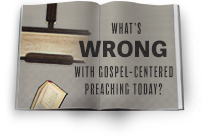Reflections on 1 Peter 1:10–12
Concerning this salvation, the prophets who prophesied about the grace that was to be yours searched and inquired carefully, inquiring what person or time the Spirit of Christ in them was indicating when he predicted the sufferings of Christ and the subsequent glories. It was revealed to them that they were serving not themselves but you, in the things that have now been announced to you through those who preached the good news to you by the Holy Spirit sent from heaven, things into which angels long to look.
1 Peter 1:10–12
As a young preacher, I was asked to expound 1 Peter to university students who patiently endured my rookie sermons. Since then, I’ve returned countless times to 1 Peter for encouragement. Tucked away in Peter’s prologue, we find the above encouragement that preachers dare not miss.
This fisherman-turned-preacher introduces his epistle by magnifying the glories of the gospel for persecuted Christians and comforting sufferers with the benefits of our salvation. When Peter reaches verse 12, he stirs the heart of every faithful pastor with two realities: what we preach (our message), and how we preach (our muscle). We know Peter is talking to preachers by the verbs he uses to describe the preacher’s task: “announcing” and “evangelizing.” As I enter the pulpit this coming Sunday, these two reminders fill me with an overwhelming sense of gospel privilege.
First, consider our message.
This glorious “salvation” and “grace” was foretold long ago in messianic prophecy, over centuries of careful searching and burning curiosity (v. 10). Consider Isaiah. He knew God had promised “a Son would be given,” an “Immanuel” would come, and a Suffering Servant would die for sinners (Isa. 7:14; 9:16; 53). Through these prophets, God’s Spirit was “pointing” to a bloody cross and an empty tomb (1 Pet. 1:11). But who would this savior be, and when would he come? They saw the bud, but never the blossom.
We live on the other side of the cross, surrounded by the rich flowering of gospel fulfillment. The Lord also showed these seers of old that they were “serving” future saints—like you and me (v. 12a). Preachers, let’s read and preach the Old Testament as the apostles did, convinced that it was also written “for us” (Rom. 4:23; 15:4; 1 Cor. 9:9; 10:11). Jesus said, “Many prophets and saints . . . longed to see what you now see, yet never saw it; to hear what you hear, yet never heard it” (Matt. 13:17).
Even more, Peter even says that “angels long to look” into this gospel message (v. 12d). Gabriel longs to discover what God has done to redeem sinners. How this humbles and inspires the preacher!
Second, consider our muscle: “preached . . . by the Holy Spirit sent from heaven” (v. 12).
Praise God that we do not approach the pulpit in our own strength. Heaven has come to the aid of poor, weak, deflated preachers prone to discouragement. God has not left us without an abundant supply of his strength for every sermon: “‘Not by might nor by power, but by My Spirit,’ says the LORD of hosts” (Zech. 4:6). The same Spirit who inspired the prophets and who empowered the apostles is no less active and almighty today as Christ builds his church through faithful preaching.
Dear brothers, may this God-given privilege and power fire our hearts and fuel our preaching to the end of the age!








